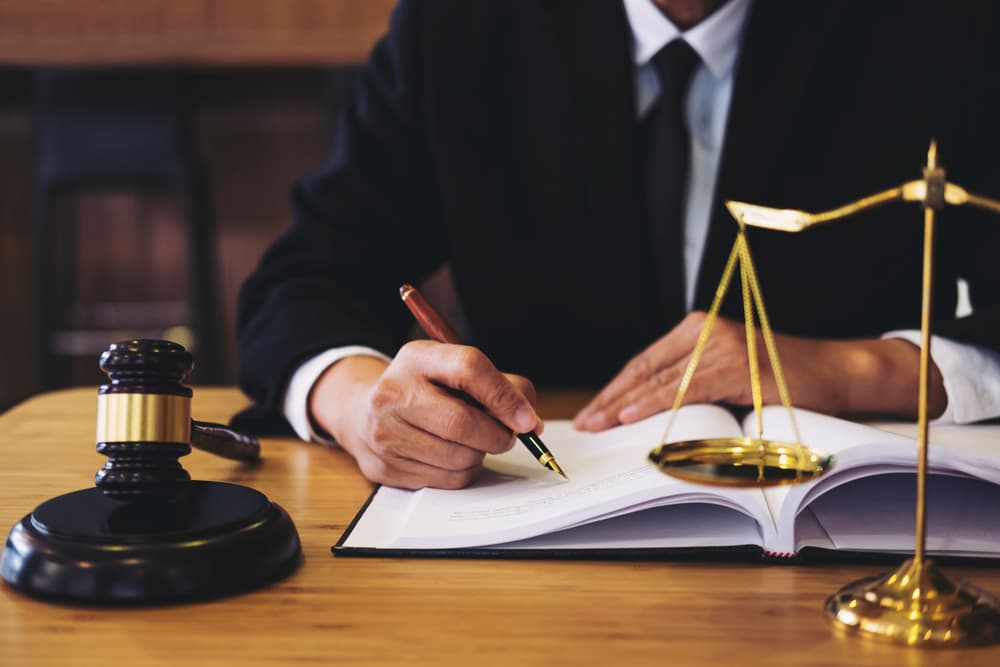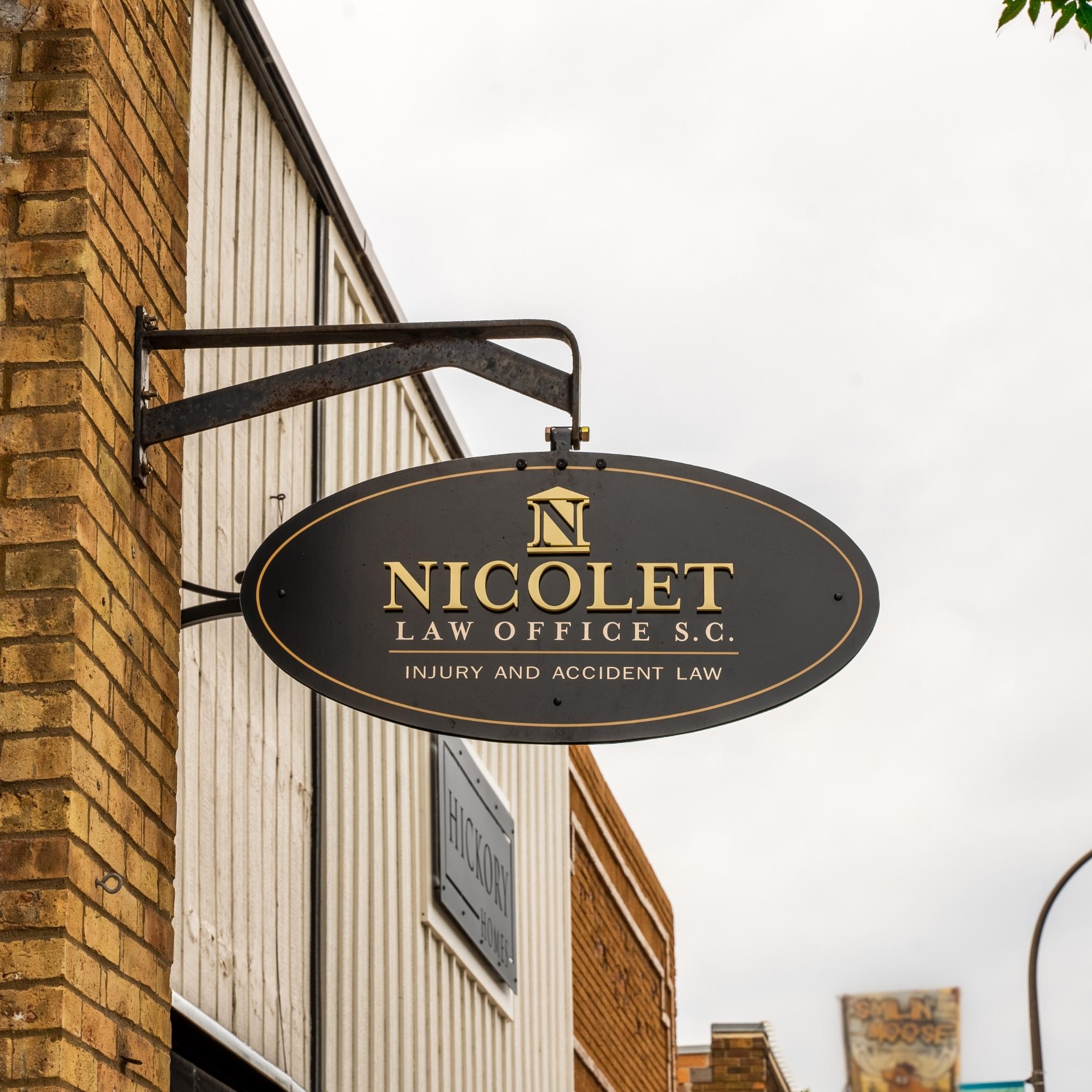Wrongful death refers to an individual's death resulting from the negligence, misconduct, or intentional actions of another party. This can occur in various contexts, including accidents or criminal acts.
Wrongful death claims seek to hold responsible parties accountable by pursuing legal action on behalf of the deceased person's surviving family members or estate.
Parties might seek compensation for financial losses, emotional distress, and the impact on the survivors' quality of life, among other losses. Money will never bring back loved ones, but it can provide justice and financial support for families dealing with various losses.
Establishing liability and navigating wrongful death cases can be challenging, so grieving families should always seek representation from a wrongful death attorney.
Elements of a Wrongful Death Claim
A wrongful death claim typically involves proving several essential elements to establish liability under the law and seek compensation:
- Death of a person: The claim must follow the death of an individual due to the alleged wrongful actions of another party.
- Negligence or wrongful act: The plaintiffs must show that the defendant acted negligently or engaged in wrongful conduct.
- Causation: Establishing a direct link between the defendant's conduct and the death is necessary. This requires demonstrating that the defendant's conduct was a substantial factor in causing the fatal outcome.
- Surviving family members: Wrongful death claims happen on behalf of the surviving family members, such as spouses, children, or dependents, who have suffered damages due to the loss.
Understanding these elements and distinctions is crucial when navigating the complexities of a wrongful death claim, ensuring that surviving family members receive the justice and compensation they deserve for the tragic loss of a loved one. This type of claim should be in the hands of an experienced wrongful death lawyer.
Common Causes of Wrongful Death

Wrongful death cases can arise from various tragic incidents, each presenting unique challenges and legal considerations. Understanding the common causes of wrongful death is crucial for identifying potential liability and seeking justice for the loss of a loved one.
Car Accidents
Car accidents are a leading cause of wrongful death. Factors such as distracted driving, speeding, driving while intoxicated, or reckless behavior contribute to fatal crashes. In wrongful death claims, establishing the negligent actions of the at-fault driver is necessary for pursuing compensation.
Semi-truck Accidents
Accidents involving semi-trucks often result in severe injuries and fatalities due to the size and weight difference between cars and commercial vehicles. Wrongful death claims in truck accidents may involve issues like driver fatigue, improper maintenance, or violations of safety regulations by drivers or the trucking company.
Motorcycle Accidents
Motorcycle accidents can lead to fatal injuries, especially due to the vulnerability of riders. Causes may include collisions with other vehicles, road hazards, or other conditions. Proving liability in wrongful death cases often involves demonstrating the negligence of other motorists.
UTV (4-Wheeler) Accidents
UTV accidents, including those involving 4-wheelers, can result in fatal injuries, particularly in off-road settings. Wrongful death claims may arise from issues like defective equipment, inadequate warnings, or reckless operation leading to fatalities of passengers.
Dog Bites
While not as common, severe dog bites can lead to wrongful death. Cases may involve situations where a dog owner's negligence or failure to control their pet results in a fatal attack.
Many states hold owners strictly liable for their dog’s conduct, but in other jurisdictions, liability may depend on the owner's knowledge of the dog's aggressive tendencies.
Snowmobile Accidents
In cold climates, snowmobile accidents can lead to fatal outcomes. Factors such as speeding, alcohol use, or inadequate safety precautions can contribute to these accidents. Wrongful death claims may involve establishing negligence on the part of the snowmobile operator or others.
Bicycle Accidents
Bicycle accidents can result in fatal injuries, often due to collisions with motor vehicles. Wrongful death claims may focus on driver negligence, inadequate road design, or defective bicycle equipment contributing to the fatal incident.
Pedestrian Accidents
Pedestrians are vulnerable to severe injuries and wrongful death in accidents involving motor vehicles. Causes usually include driver negligence, failure to yield, running red lights, or speeding, which can increase the force of an impact between a car and a person walking.
Falls
Falls can result in fatal injuries. Whether due to hazardous conditions on properties, lack of proper warnings, or inadequate safety measures, establishing negligence is crucial in wrongful death claims arising from falls.
Wrongful death attorneys can assess the cause of the death in your family and whether you have a potential claim. Seek a free consultation today with a law firm near you.
Parties Involved in a Wrongful Death Claim
In a wrongful death claim, several parties play distinct roles throughout the legal process.
The Decedent's Estate
The legal representative of the deceased person's estate might initiate the wrongful death claim, and some states require this representative to be the plaintiff in all wrongful death actions.
The representative may be an executor named in the decedent's will or an administrator appointed by the court if there is no will. The estate often acts as the formal plaintiff in legal proceedings.
Surviving Family Members
Wrongful death claims are on behalf of the surviving family members who have suffered emotional and financial losses due to the death. These family members may include spouses, children, parents, or other dependents, depending on state laws.
Wrongful Death Attorney

Legal representation is crucial in wrongful death claims, and the attorney plays a central role. The attorney represents the decedent's estate and surviving family members, guiding them through the legal process, investigating the circumstances of the death, and advocating for their rights.
The collaboration between these parties is essential for building a strong case. Family members are not usually in a position to begin the legal process, even if they know where to begin.
A skilled wrongful death attorney ensures that the legal proceedings align with the best interests of the family, pursuing justice and financial restitution for the losses they endured as a result of the wrongful death.
Establishing Liability in Wrongful Death Cases
Establishing liability in wrongful death cases is a necessary and complex process that requires a careful investigation of the circumstances surrounding the death. Even if family members know someone else was to blame, the legal process requires sufficient evidence to prove this assertion.
To successfully establish liability, plaintiffs must prove certain key elements through evidence and legal arguments.
Liability Examples in Different Types of Wrongful Death Cases
- Vehicle accidents: Traffic accidents often involve proving that a driver's negligent behavior, such as speeding, distracted driving, or impaired driving, directly led to the fatal crash. Lawyers often prove driver liability through witness statements, traffic convictions, police reports, or surveillance footage.
- Premises Liability: Establishing liability in premises liability cases involves showing that the property owner or occupier failed to address hazardous conditions that directly led to the death, such as inadequate maintenance or lack of warnings. Photos of the hazards, property inspection and maintenance reports, and video footage can all prove liability for falls and other property-related deaths.
Criminal acts: Wrongful deaths resulting from criminal acts may involve establishing liability through evidence that the defendant committed intentional harm, leading to the death of the victim.
Additional Liability for Wrongful Death
Employer vicarious liability and dram shop liability are legal concepts that may come into play in wrongful death cases, expanding the scope of responsibility beyond the immediate wrongdoer.
Employer Vicarious Liability: When an employee's negligence or wrongful actions result in a wrongful death, the employer may be held vicariously liable. This legal doctrine establishes that employers can be responsible for their employees' actions during employment. For example, if an employee causes a fatal accident while on the job, the employer might also be liable for the wrongful death, even if the employer was not directly involved.
Dram Shop Liability: Dram shop laws hold establishments such as bars and restaurants accountable for serving alcohol to individuals who later cause harm, including wrongful death, due to intoxication. If an establishment continues to serve alcohol to a visibly intoxicated person who later causes a fatal accident, the establishment may be liable for the resulting wrongful death, emphasizing the duty to serve responsibly.
Both employer vicarious liability and dram shop liability expand the range of parties accountable in wrongful death cases, ensuring that those who contribute to or enable the wrongful actions bear a share of responsibility. Holding companies liable can also provide greater insurance coverage to ensure families receive full compensation for their losses.
Legal Challenges in Establishing Liability
Claimants might think they have a straightforward claim, but they can often hit obstacles when proving liability.
A wrongful death attorney should handle a claim to address the following possible challenges:
- Complexities of evidence: Gathering and presenting evidence to establish liability can be challenging, especially when dealing with complex circumstances or disputes over the facts.
- Multiple defendants: In some cases, multiple parties may share liability. Determining each party's degree of fault adds complexity to the legal proceedings.
- Defenses against liability: Defendants may present various defenses, such as claiming contributory negligence or asserting that their actions did not directly cause the death.
- Statute of limitations: There are time limitations for filing wrongful death claims, and meeting these deadlines is crucial. Failure to file within the specified timeframe may result in losing the right to pursue legal action.
Importance of Representation by a Wrongful Death Attorney
Given the complexities of establishing liability in wrongful death cases and the stress of the process, seeking legal representation should be your priority. Wrongful death attorneys investigate what happened, gather evidence, consult expert witnesses, and construct a compelling case on behalf of the deceased person's estate and surviving family members.
The sooner you consult a wrongful death lawyer, the sooner you can rest assured your claim and financial future are in good hands.
Damages in Wrongful Death Claims

Damages in wrongful death claims should cover various losses of surviving family members due to the untimely death of a loved one. These may include economic damages such as medical expenses, funeral costs, and lost financial support.
Non-economic damages cover the emotional toll, pain, and suffering of family members. Additionally, punitive damages may be available in cases involving gross negligence or intentional misconduct, such as criminal violence and homicide.
Determining the full extent of damages requires a thorough assessment of the impact on the family, emphasizing the need for legal representation to ensure fair compensation and justice in wrongful death cases.
Wrongful Death Laws by State
Wrongful death laws vary by state, creating a complex legal landscape that necessitates a state-specific understanding for pursuing claims. Each state has statutes, limitations, and procedures governing wrongful death actions. Factors such as who can file a claim, the types of damages recoverable, and the time limits for filing differ.
Some states have stringent rules, allowing only certain family members to bring a wrongful death action, while others may permit a broader range of relatives to recover. Damages also vary, covering medical expenses, funeral costs, lost earnings, and pain and suffering, among other factors.
Additionally, statutes of limitations dictate the timeframe within which a family must file a wrongful death lawsuit. These time limits range from one to several years, emphasizing the importance of prompt legal action.
Understanding wrongful death laws by state is crucial when pursuing legal recourse. Seeking the guidance of an experienced attorney familiar with the specific jurisdiction ensures that families know their rights, adhere to deadlines, and present a compelling case to secure justice and fair compensation for their tragic loss.
The Role of a Wrongful Death Attorney

A wrongful death attorney is key in guiding grieving families through the process of pursuing justice and legal relief. Experienced lawyers advocate for surviving family members, representing their interests in negotiations or court proceedings.
Their experience and dedication ensure families have a strong legal ally to navigate the legal system and achieve a measure of closure through a successful wrongful death claim.
If you lost a loved one, immediately consult a personal injury lawyer in your area. You can focus on your emotional health and grief while a legal professional handles your case.
